|
Genres, Themes, Actors, and Directors:
- Boxing
- Corruption
- John Garfield Films
- Robert Rossen Films
Response to Peary’s Review:
Peary writes that “this anti-boxing noir classic was powerfully directed by Robert Rossen” and features “John Garfield, the screen’s romantic rebel and symbol for the immigrant poor”, who “found an ideal role as Jewish boxer Charley Davis, a decent tenement dweller who becomes a boxer to earn much-needed money and is quickly corrupted”. (Peary adds that “as in Golden Boy, the boxing arena represents hell.”) Highlights include the “thrilling boxing finale, intensely shot by James Wong Howe”, and “a fine performance by Lilli Palmer” as Garfield’s “smart fiancee”. Peary provides an analysis of the “script by Marxist Abraham Polonsky” as “an indictment of capitalism”, with “boxing shown to be similar to any ruthless mainstream business” in which “employers not only exploit their boxer employees but own them by virtue of a contract; the employees, having no union, literally fight against one another in order to gain a higher rank.” He adds that “Polonsky speaks of the dignity of poverty (as represented by Revere, who will take none of her son’s earnings) and, through designer Palmer (whose career moves along as swiftly as Charley’s, without her selling her soul), he pays respect to the artist.”
For better or for worse (or perhaps simply inevitably), Rossen and Polonsky’s film feels just as timely and relevant today as ever. Nothing about Garfield’s quest for money — earned through satisfyingly brutal fights that allow him to vent his anger at the world — or his relatively easy fall into corruption is unrealistic; aspiring boxing and wrestling stars today face exactly the same lures and corruptive oversight. Palmer’s character is refreshingly nuanced: she loves and supports Garfield, but knows her own limits and sticks to them.
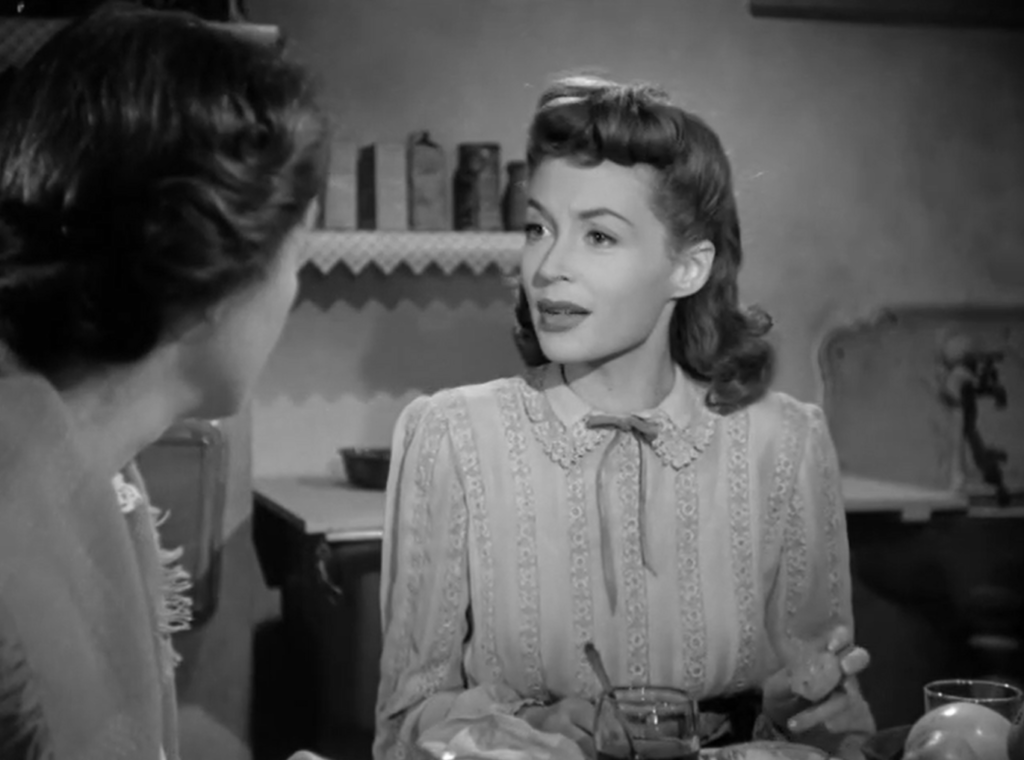
Hazel Brooks does a fine job playing a seductive groupie in it for the money:
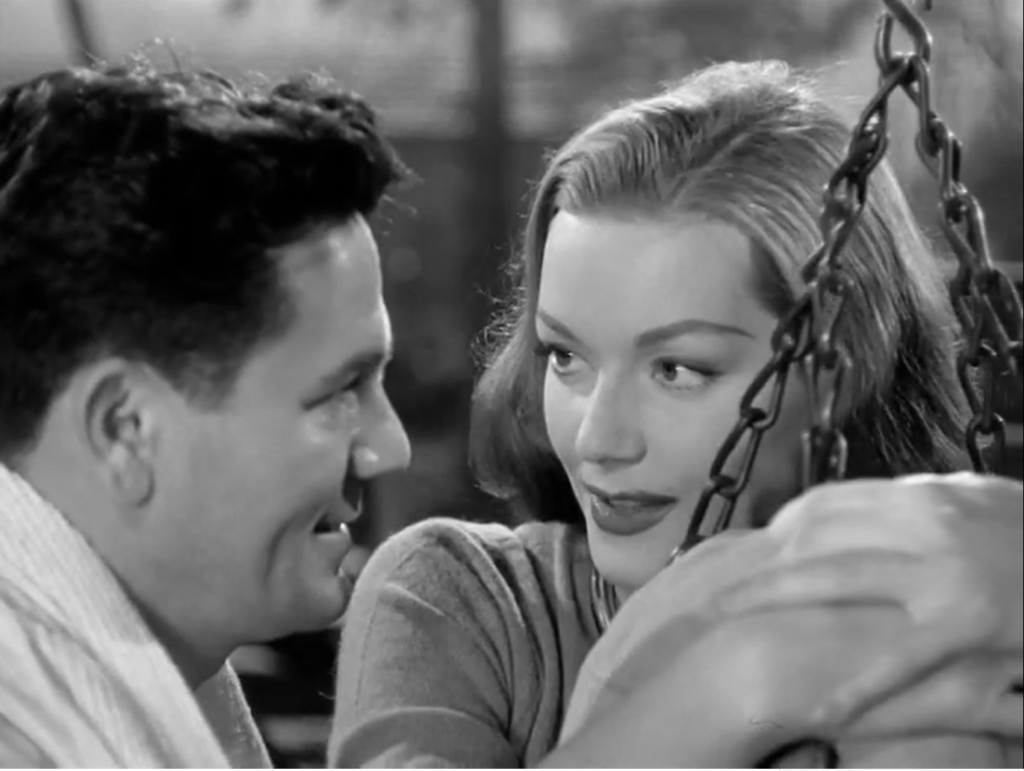
and Canada Lee is highly memorable in a critical supporting role as the black boxer who Garfield almost fatally knocks out, then hires to help him train; his story is nearly as impactful as Garfield’s.
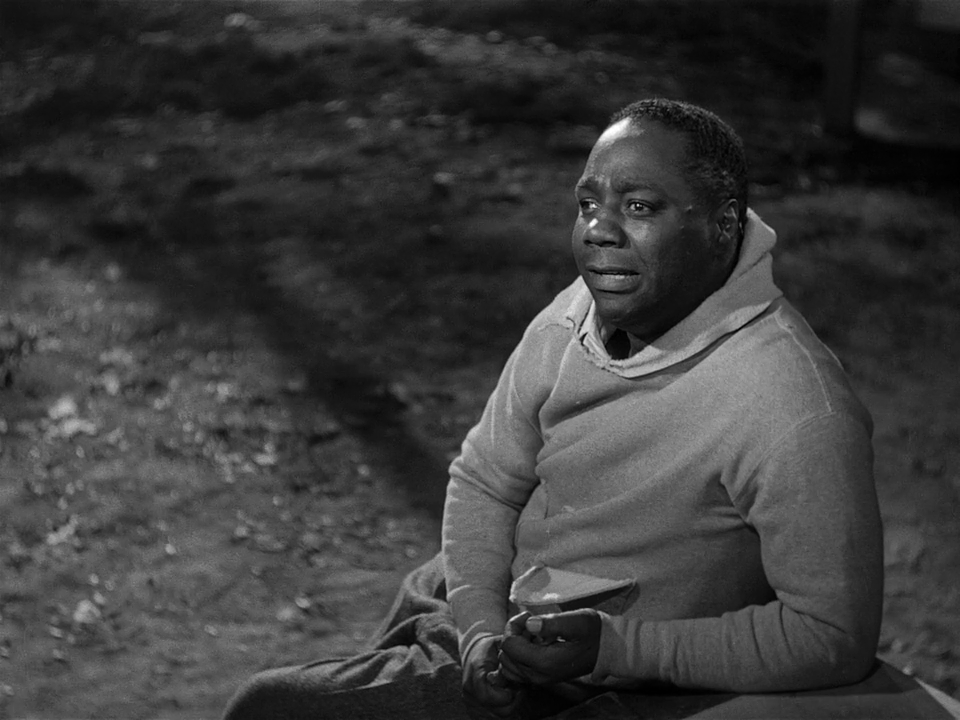
Howe’s cinematography is phenomenal throughout, and Rossen directs with a fine sense of composition and atmosphere. This one remains well worth a visit.
Redeeming Qualities and Moments:
- John Garfield as Charley
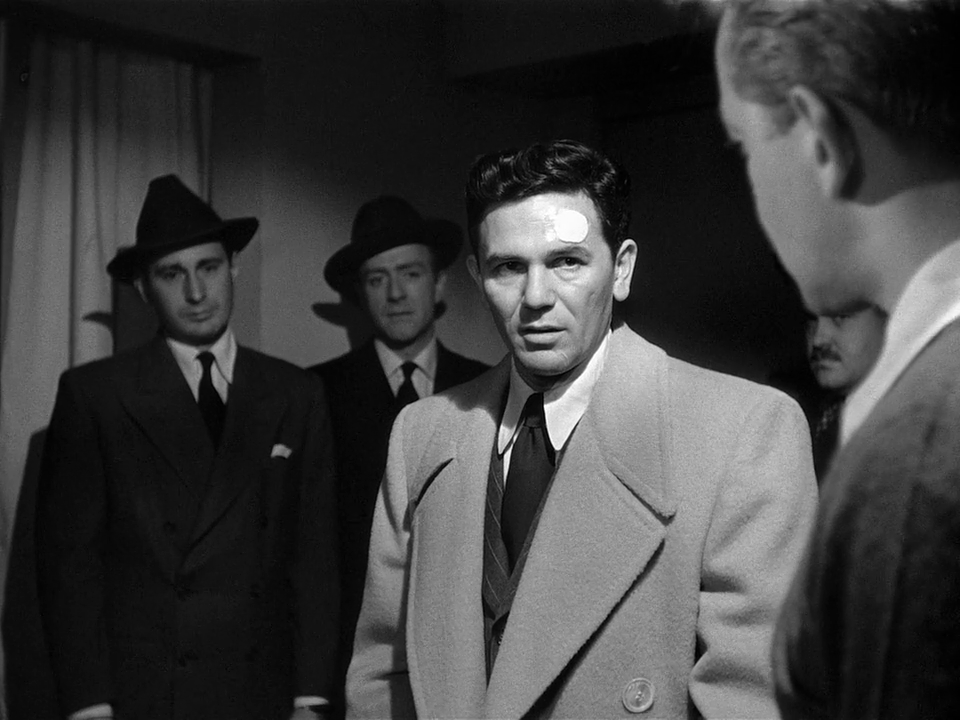
- Lilli Palmer as Peg

- Canada Lee as Ben
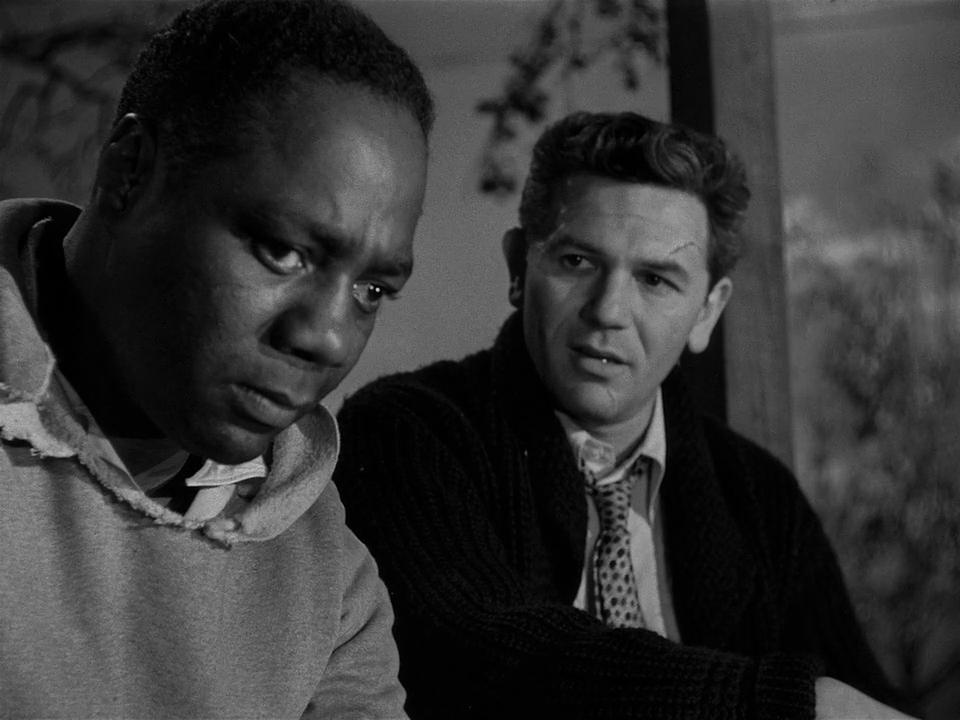
- Fine direction by Rossen
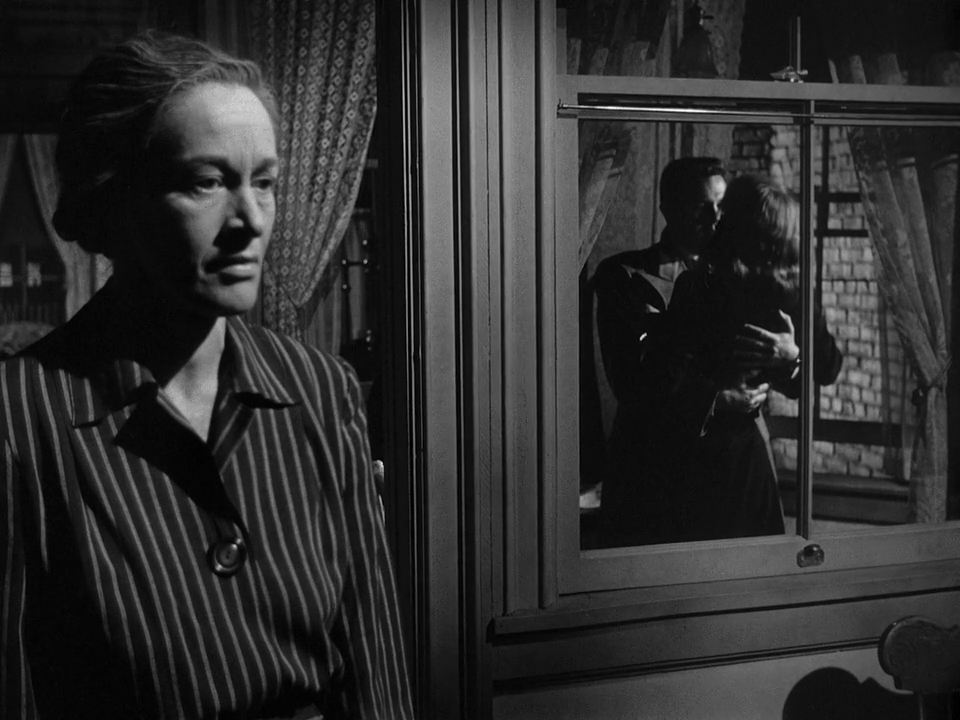
- Francis Lyon and Robert Parrish’s Oscar-winning editing
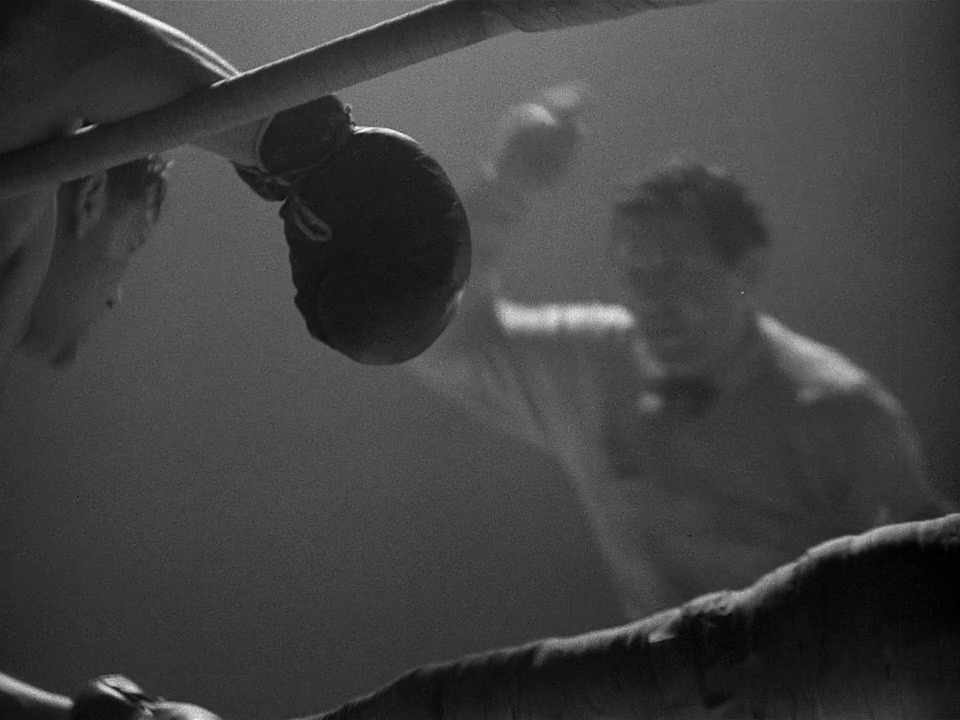
- Excellent cinematography by James Wong Howe

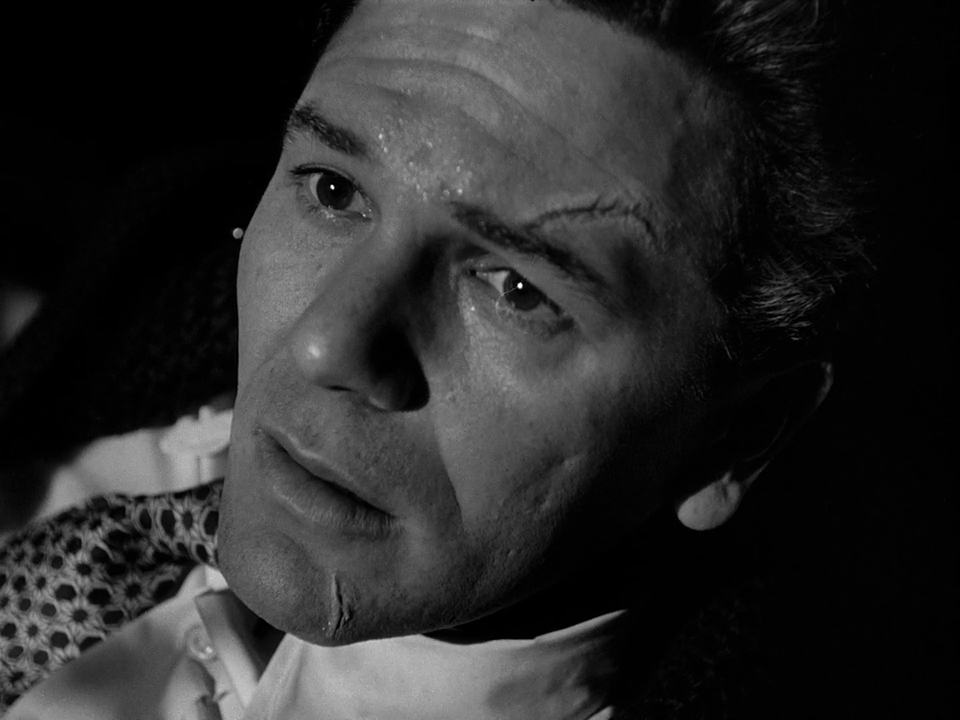
Must See?
Yes, as a boxing classic and all-around good show.
Categories
Links:
|
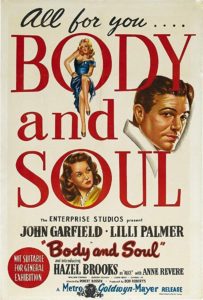










One thought on “Body and Soul (1947)”
A no-brainer must-see. As per my post in ‘The ’40s-’50s in Film’ (fb):
“What is it this time, Charley? Last time you came, it was because you were bored. And the year before, you were lonely. Once it was your birthday, twice it was mine. What’s the occasion now?”
‘Body and Soul’ (1947): I hate movies about boxing. Well, because I hate watching boxing. But, as a movie (and the boxing aside, which is really just at the end anyway), this one is top-notch and has it all: great – very natural-sounding – script (Abraham Polonsky), great direction (Robert Rossen), great camerawork (James Wong Howe) and top-flight performances by a very sturdy cast headed by John Garfield. Probably because he spends so much of the film’s time being so torn (morally and otherwise), this is among his best work. I love the very smart / tough support he gets from (a very impressive) Lilli Palmer (as his girl), Anne Revere (as his mom), future director Joseph Pevney (as his close pal) and Canada Lee (as the guy he learns to lean on). For the sleaze-factor, Hazel Brooks, William Conrad and Lloyd Gough all have it in spades. Visually and in some of its tone, this is a very noir-ish film, though it breaks basic noir rules. I read somewhere that, when Scorsese was preparing ‘Raging Bull’, some of its inspiration came from ‘Body and Soul’. That’s easy to see. But, in a number of ways – quite aside from the boxing – it’s kind of inspirational anyway.